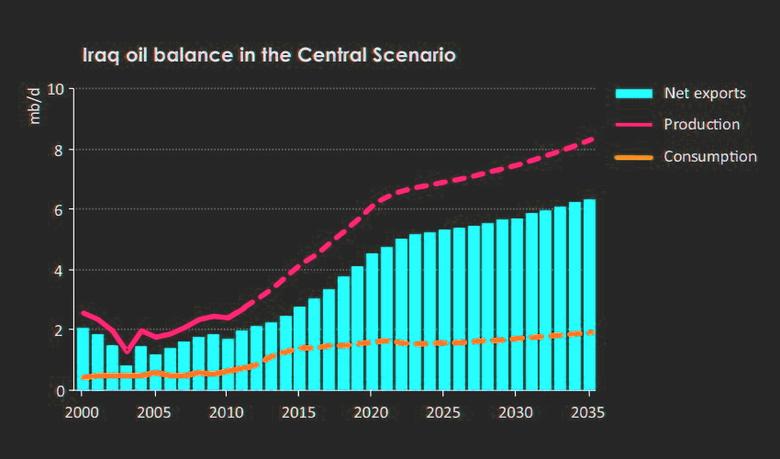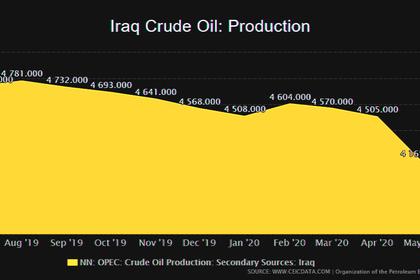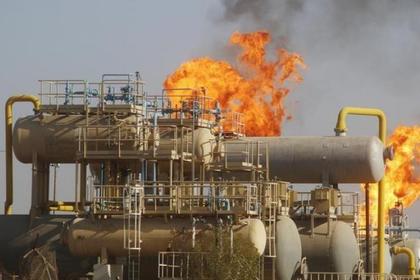
IRAQ NEED 7 MBD

PLATTS - 24 Aug 2020 - Iraq is targeting to reach an oil production capacity of 7 million b/d, compared with 5 million b/d currently, and to stop flaring gas as well as importing fuel from Iran by 2025, the country's oil minister Ihsan Ismaael said on Aug. 23.
OPEC's second largest oil producer is also increasing its oil export capacity to 6 million b/d from the current level of more than 3.8 million b/d, Ismaael told the state-run Iraqi Media Network television station.
The country has also implemented nearly 80% of all gas projects that will help reduce gas flaring and imports from Tehran, he added.
"All gas projects are currently under implementation, except for Ar Ratawi, which is pending tendering," Ismaael said.
Ar Ratawi, the country's biggest gas project that has been delayed due to a lack of financing, will initially produce 300 MMcf/d and will ultimately reach 1 Bcf/d, which is capable of producing 1.2 GW of electricity.
Ar Ratawi project
As part of the $8 billion energy deals inked during Prime Minister Mustafa al-Kadhimi's state visit to Washington last week, Honeywell and Iraq's oil ministry agreed "to advance the development of the Ar Ratawi gas project, which will further enable Iraq to capture, process, and utilize indigenous gas resources to meet domestic energy demand," according to an Aug. 19 statement from the US Department of Energy.
Iraq is under US pressure to wean itself off Iranian electricity and gas imports, needed due to power shortages and flaring of associated gas, which is also bound by production limits due to the country's attempted adherence to OPEC+ production cuts.
After Russia, Iraq flares the largest quantity of gas in the world, with some 18 billion cubic meters, or 632 Bcf, burnt in 2019, according to a World Bank study published on July 21.
Power shortage
Ismaael said if Iraq is able to produce 7 million b/d of oil, it can produce a maximum of 5 Bcf/d of gas, which is capable of generating 20 GW of electricity. However, Iraq's power requirement is 35 GW by 2030.
This is why Iraq will need to develop renewable energy, such as solar energy, to plug the power shortage plaguing the country, Ismaael said. Iraq could also import gas from countries other than Iran in the form of LNG.
Iraq could lower its dependence on Iranian gas and electricity imports next year if it can implement the multi-billion dollar deals signed with US companies and attract Saudi investments, the country's deputy prime minister, Ali Allawi, had said on Aug. 21.
Ali, who is also the finance minister, said Iraq is seeking financing from the US, the Export-Import Bank, or EXIM, bank and other financial institutions to help fund the Ar Ratawi project.
Iraq is also trying to woo Saudi investments and link its electricity grid to the Arab Gulf grid through Saudi Arabia and Kuwait.
Chevron deal
As part of the US deals, Iraq's oil ministry signed an agreement with oil major Chevron that "outlined a framework for entering into exclusive negotiating on an exploration, development, and production contract in the Dhi Qar Province".
Ismaael said Dhi Qar is currently producing around 200,000 b/d of crude oil, and if it is able to pump 1 million b/d, the new output will include refining and petrochemical production.
The minister also said that his ministry is still in talks with Exxon Mobil to develop the Southern Iraq Integrated Project, a complex, multifaceted development worth tens of billions of dollars that has been under negotiations since at least 2015.
-----
Earlier:










